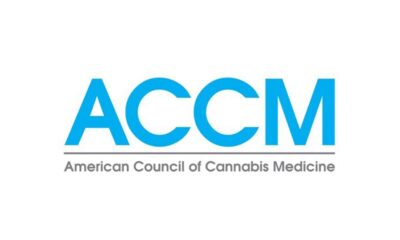Alto Neuroscience, Inc. (NYSE: ANRO) delivered its financial results for the second quarter ending June 30, 2024, and updated investors on its ALTO-100 drug. The company has no revenue to report as it is still in a drug discovery phase. Alto reported a net loss of $16 million versus $8.7 million for the same quarter in 2023.
At the end of the quarter, Alto had cash, cash equivalents, and restricted cash of $193.6 million. The company said it expects its cash will be sufficient to get the company to 2027.
Expenses
Research and development (R&D) expenses were $13.2 million versus $7.1 million for the same period in 2023. The company attributed the increase to costs associated with the ongoing Phase 2b clinical studies for ALTO-100 and ALTO-300, in addition to $2 million related to development milestones achieved with ALTO-101 and ALTO-203.
General and administrative (G&A) expenses grew to $5.2 million versus last year’s $2.1 million. The company said the increase was due to costs associated with higher headcount to support expanded clinical development efforts, growing operational requirements, and costs associated with operating as a public company.
“Over the recent months we achieved several important milestones for our company and for the field of precision psychiatry as a whole,” said Amit Etkin, M.D., Ph.D., founder and chief executive officer of Alto Neuroscience. “Completing the enrollment of 301 patients in our Phase 2b study of ALTO-100 represents the first randomized double-blind study to be completed using our neurocognitive battery as a patient selection tool. We are looking forward to completing this study and reporting topline data in October 2024. Additionally, the funding award we received from Wellcome Trust supports our acceleration of the development of ALTO-100 in bipolar depression directly into a Phase 2b study. Bipolar depression has a similar neurobiological profile as that of the patients being evaluated in the MDD study, and the only approved treatments for this condition are antipsychotic medications. Taken together, these two studies of ALTO-100 across diagnoses have the potential to change the historical framework of neuropsychiatric treatment.”
Dr. Etkin noted that the company has five Phase 2 studies ongoing across four novel product candidates, all of which they expect to report topline data from before the end of 2026.
ALTO-100
ALTO-100 is an oral small molecule believed to work through enhancing neural plasticity and is in development for the treatment of major depressive disorder (MDD) and bipolar depression (BPD). Alto said it is currently evaluating ALTO-100 in a 301-patient Phase 2b study in MDD patients characterized by a memory-based cognitive biomarker.
In July 2024, the Alto announced the initiation of a Phase 2b study of ALTO-100 in patients with BPD. Bipolar depression is associated with reduced neuroplasticity in the hippocampus, while ALTO-100 has been shown to directly increase hippocampal neuroplasticity according to the company. Alto said it expects to report topline data from the Phase 2b BPD study in 2026.
ALTO-300
ALTO-300 (agomelatine), is an oral small molecule that is believed to act as a melatonin agonist and 5HT2C antagonist. Alto said it is being developed as a new treatment for patients with MDD as an adjunctive treatment to an antidepressant to which they had an insufficient response. Alto told investors it is currently evaluating ALTO-300 in a 200-patient Phase 2b study in MDD patients characterized by an EEG biomarker signature. The study is evaluating ALTO-300 compared to placebo over a 6-week treatment period, and the primary outcome is the change from baseline in MADRS score.
The company ave the following near-term expected milestones in its statement:
- 2H 2024 (October) — ALTO-100 Phase 2b MDD study topline data
- 1H 2025 — ALTO-300 Phase 2b MDD study topline data
- 1H 2025 — ALTO-203 Proof-of-Concept MDD study topline data
- 2025 — ALTO-101 Proof-of-Concept CIAS study topline data
- 2026 – ALTO-100 Phase 2b BPD study topline data


 California Cannabis Updates1 year ago
California Cannabis Updates1 year ago
 Breaking News1 year ago
Breaking News1 year ago
 best list1 year ago
best list1 year ago
 Business1 year ago
Business1 year ago
 Business1 year ago
Business1 year ago
 cbd1 year ago
cbd1 year ago
 Bay Smokes1 year ago
Bay Smokes1 year ago
 autoflower seeds1 year ago
autoflower seeds1 year ago








































